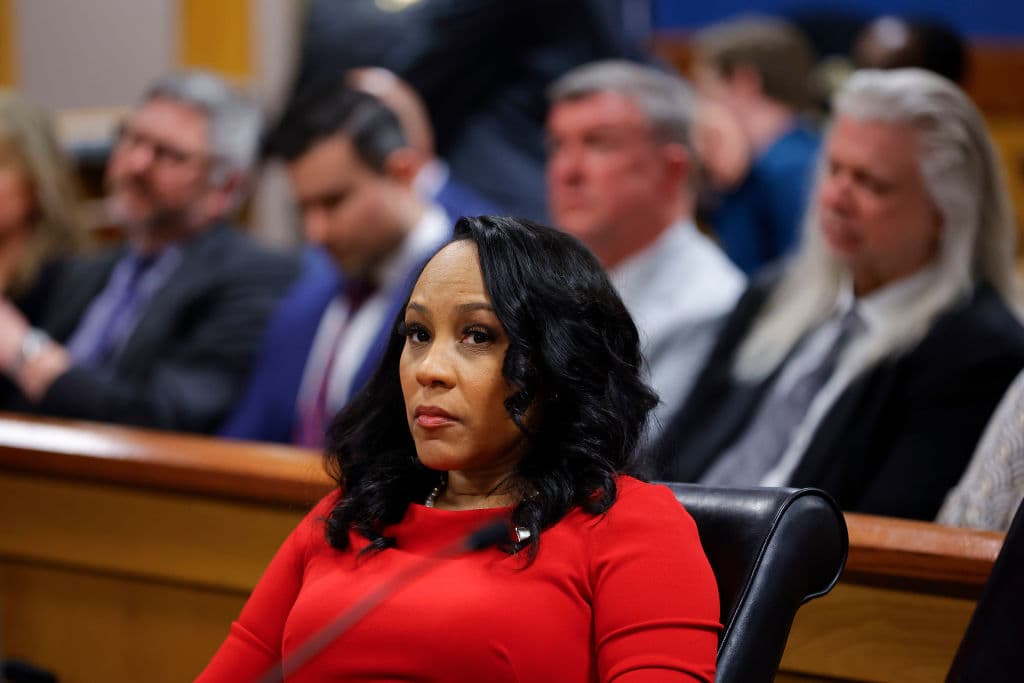Fani Willis Makes Last-Gasp Appeal To Beat ‘Rare’ Disqualification in Trump Case for Love Affair With Special Prosecutor
The Georgia supreme court could uphold the district attorney’s disqualification — or cement her purge from her racketeering case.

The appeal, to the Georgia supreme court, by the district attorney of Fulton County, Fani Willis, of her disqualification from her prosecution of President-elect Trump and more than a dozen others is a last-gasp bid to save a floundering prosecution.
Please check your email.
A verification code has been sent to
Didn't get a code? Click to resend.
To continue reading, please select:
Enter your email to read for FREE
Get 1 FREE article
Join the Sun for a PENNY A DAY
$0.01/day for 60 days
Cancel anytime
100% ad free experience
Unlimited article and commenting access
Full annual dues ($120) billed after 60 days

